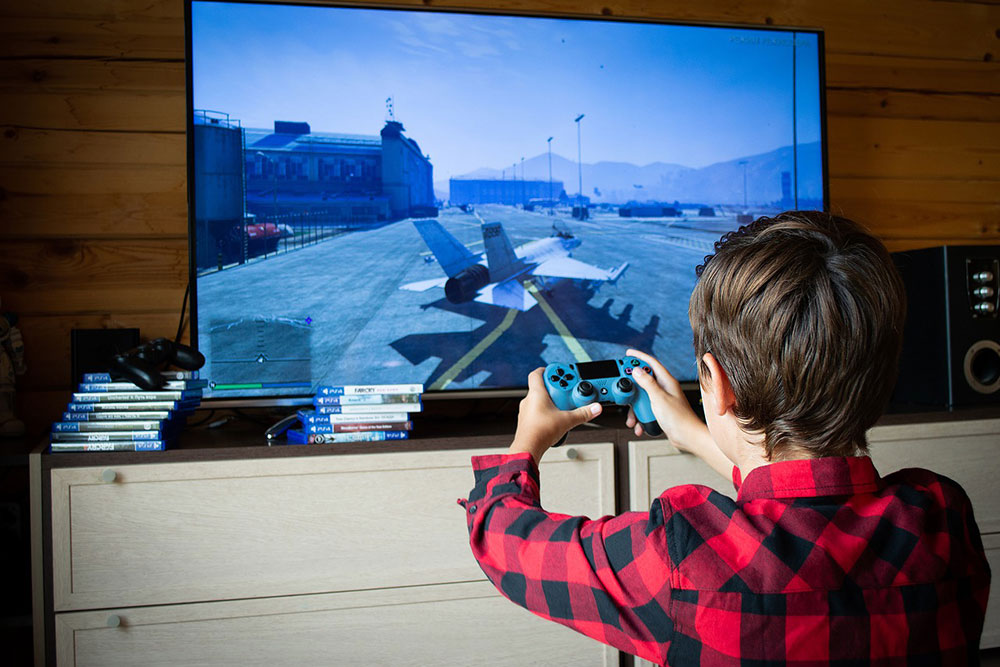Can You Really Be Addicted To Video Games?
Published on September 3rd, 2018
Updated on January 3rd, 2024

Video game addiction is not currently considered a diagnosable disorder, but it is under consideration by the American Psychological Association (APA). People who struggle with video game addiction are often referred to as ‘gamers’. While not every gamer has an addiction to video games, many gamers become consumed with gaming. This causes their mental health to be negatively impacted.
Video game addiction affects people whose gaming has a significant impact on their quality of life. It is considered a gaming addiction when a gamer has real-life consequences that come from their gaming habits.
Warning Signs of Video Game Addiction
It is important to be aware of the warning signs if you suspect either you or a loved one is suffering from video game addiction. The warning signs of video game addiction are similar to signs of other addictions that are recognized by the APA.
Sponsored by

Choose a therapist to work with and start healing with 20% off from BetterHelp.
Click HereWarning signs of gaming addiction include:
- Preoccupation with gaming
- Being distracted with thoughts about gaming
- Feeling restless or irritable when not able to play video games
- Feeling an urgent need or excitement to return to gaming
- Choosing video games over important responsibilities
- Neglecting personal hygiene due to distraction of playing video games
- Losing sleep over gaming
- Lying or minimizing severity or frequency of gaming
- Becoming noticeably enraged when gaming
- Being extremely emotionally invested in video games
- Losing touch with friends and family due to preoccupation with gaming
- Loss of social life due to gaming
- Having a social life only or primarily through gaming
- Headaches or pain around the eyes as a result of gaming
- Pain in hands and arms as a result of controller use
- Lack of physical exercise
- Lack of time spent outdoors
- Financial loss or strain as a result of poor motivation to work
- Spending most of income on video games
- Failure to learn self-sustaining skills
- Using gaming as a means to avoid responsibilities, emotions or personal crises
Causes of Video Game Addiction
Video games can be seductive. The design of a video game is to keep the gamer engaged. For many, video games provide a means to escape reality. Some people may seek one of the following:
- Adventure
- Solace
- Peace
- Challenge
- Excitement
The gratification a gamer feels when playing video games can cause an addiction to the gaming experience. This happens when gaming is used to feel pleasure and satisfaction.
Gaming addiction is often compared to gambling addiction and sex addiction. It is argued that gamers crave and seek the release of dopamine gained when winning a game.
This experience is closely related to the experience of winning when gambling. It can also be compared to the experience of reaching orgasm for a sex addict. The gamer is addicted to the dopamine release upon winning a challenge in a video game.
There are conditions that place a person at increased risk of video game addiction. Suffering from other mental health conditions may result in a gaming addiction. Such conditions may include:
Children and adolescents are at increased risk of developing video game addiction if they suffered from any of the following issues while growing up:
- Bullying
- Social isolation
- Difficulty with fitting in
- Physical limitations
- Lack of emotional support at home
- Neglect and abuse
Treatment of Video Game Addiction
Treatment for video game addiction is closely related to the treatment of other addictions. It is geared toward learning coping skills and getting in touch with feelings. Treatment for video game addiction aims to teach life skills to promote a healthier lifestyle. A gaming addict may engage in:
- Individual counseling
- Family therapy
- Group therapy
- Residential treatment (in severe cases)
Some professionals choose to adopt a harm-reduction approach. This approach promotes healthy gaming habits. It helps the addict strengthen skills for self-control. With this harm reduction, a gamer is not discouraged from playing games. Instead, they are encouraged to incorporate other life skills and hobbies, as well as playing video games. This way, they do not lose their vice of playing video games. They are encouraged to incorporate other activities into their day, so video games do not consume them as much.
Some professionals may promote an abstinence-based approach. With such an approach, the gamer is expected to abstain from gaming completely. This can be challenging for many people, but with proper guidance it is attainable.
Therapeutic approaches that are commonly used in the treatment of gaming addiction include:
- Cognitive Behavioral Therapy. Cognitive behavioral therapy (CBT) is used to target compulsive gaming behaviors. This helps to modify behavior and teach skills for restraint.
- Dialectical Behavioral Therapy. Dialectical behavioral therapy (DBT) incorporates a mindfulness-based approach. This approach creates balance between gaming and healthy living. DBT teaches impulse control skills. It also teaches resilience against cravings to play.
- 12-Step Programs. Abstinence-based approaches tend to promote Online Gamers Anonymous, which is a 12-step program.
Sponsored by

Find an affordable therapist online with 20% off from BetterHelp.
Click Here






Leave A Reply